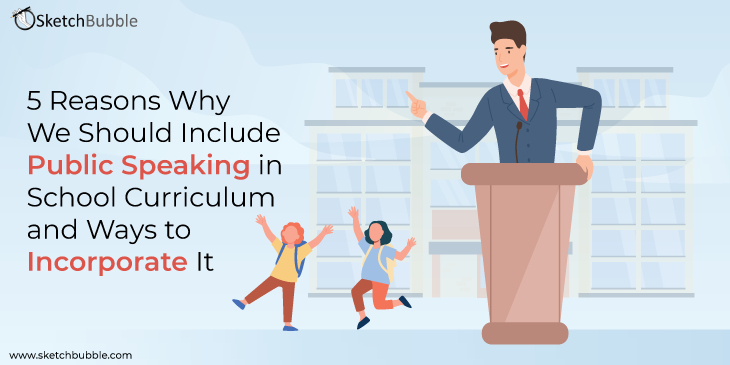Public Speaking In Schools
Public speaking in schools is an essential skill that can empower students and help them excel in various aspects of their lives. Whether it’s presenting a project, participating in debates, or simply expressing their ideas confidently, public speaking plays a crucial role in shaping their future. Are you curious about how public speaking can benefit you? Well, you’ve come to the right place! In this article, we’ll explore the importance of public speaking in schools and how it can help you become a more effective communicator.
Imagine standing in front of your classmates, delivering a speech that not only captures their attention but also inspires and motivates them. Public speaking allows you to express your thoughts and ideas, making a lasting impact on your audience. It helps build your self-confidence, boosts your self-esteem, and enhances your communication skills. By mastering the art of public speaking, you can become a persuasive advocate for the causes that matter to you, whether it’s raising awareness about important issues or rallying your peers to take action.
Public speaking doesn’t just benefit you academically, but it also prepares you for real-world scenarios. From job interviews to professional presentations, the ability to articulate your ideas clearly and confidently is invaluable. Moreover, public speaking helps you develop critical thinking skills, as you learn to effectively structure your arguments, analyze information, and respond to questions on the spot. So, get ready to embark on an exciting journey of self-discovery as we dive deeper into the world of public speaking in schools!

Public Speaking in Schools: Nurturing Confident Communicators
Introduction: Public speaking is an essential skill that plays a crucial role in a student’s academic and personal development. In schools, it serves as a platform for students to express their ideas, build confidence, and develop strong communication skills. This article explores the benefits of integrating public speaking into the school curriculum, offers tips for effective public speaking, and highlights the impact it can have on students’ overall growth and success.
The Importance of Public Speaking in Schools
Public speaking is not just about standing in front of an audience and delivering a speech. It is about learning to articulate thoughts, engage with others, and convey ideas effectively. Schools recognize the significance of public speaking and its impact on students’ academic, social, and personal development. Here are three key reasons why public speaking should be a part of every school’s curriculum:
1) Building Confidence: Public speaking provides students with a platform to overcome stage fear and build confidence in expressing their thoughts and ideas. When students speak in front of their peers and teachers, they learn to embrace their individuality, develop self-assurance, and build resilience.
2) Developing Communication Skills: Effective communication is a vital life skill. Public speaking hones students’ abilities to organize their thoughts, structure their narratives, and convey messages clearly and persuasively. These skills are transferable and benefit students in various aspects of their lives, from presentations in college to job interviews in the future.
3) Fostering Critical Thinking: Public speaking requires students to research, analyze information, and construct logical arguments. It enhances critical thinking skills, encouraging them to think deeply, evaluate evidence, and present well-reasoned opinions. These skills empower students to become independent thinkers and active contributors to society.
Overall, integrating public speaking into the school curriculum empowers students with the confidence, communication skills, and critical thinking abilities necessary for success in academic and professional spheres.
Tips for Effective Public Speaking in Schools
Public speaking can be intimidating, especially for students who are new to it. To help students excel in this vital skill, here are three key tips for effective public speaking in schools:
1) Preparation is Key: Encourage students to prepare thoroughly before their speeches. Research the topic, gather relevant information, and practice delivering the speech multiple times. This preparation will boost their confidence and help them feel more comfortable on stage.
2) Visualize Success: Teach students the power of visualization. Encourage them to visualize themselves delivering their speech confidently and captivating the audience. Visualizing success can significantly reduce anxiety and increase self-belief.
3) Engage the Audience: Encourage students to make eye contact, use expressive gestures, and vary their tone to engage the audience. Public speaking is not a one-way street – it is all about creating a connection with the listeners, making them actively participate in the discussion or presentation.
By following these tips, students can enhance their public speaking skills and deliver impactful presentations that leave a lasting impression on their audience.
The Benefits of Public Speaking in Schools
Public speaking in schools offers a plethora of benefits that extend beyond the classroom. Here are three key advantages of incorporating public speaking into the school curriculum:
1) Enhanced Academic Performance: Public speaking improves critical thinking, research skills, and the ability to express ideas coherently. These skills translate to improved academic performance as students gain the tools to articulate their thoughts effectively in essays, presentations, and examinations.
2) Increased Leadership Abilities: Public speaking nurtures leadership abilities as students learn to take charge, communicate effectively, and inspire others with their words. These qualities are instrumental in taking on leadership roles, both in school and in future endeavors.
3) Boosted Self-Confidence: Through public speaking, students develop confidence in their abilities to speak before an audience. This newfound self-assurance extends to other areas of their lives, enhancing their overall personality development and empowering them to tackle challenges head-on.
By recognizing and embracing the benefits of public speaking in schools, educators can create an environment where students thrive, grow in confidence, and develop into effective communicators.
The Role of Public Speaking Competitions in Schools
Introduction: Public speaking competitions serve as a valuable platform for students to showcase their skills and receive recognition for their efforts. These competitions provide additional opportunities for students to refine their public speaking abilities, engage with peers from other schools, and learn from experienced mentors. Here are three key benefits of participating in public speaking competitions:
1) Enhancing Communication Skills: Public speaking competitions challenge students to improve their communication skills constantly. By presenting in front of unfamiliar audiences, they learn to adjust their communication style, adapt to different contexts, and refine their delivery techniques. These experiences expand their comfort zones and make them well-rounded communicators.
2) Building Resilience: Competing in public speaking competitions requires resilience and perseverance. Students face tough competition, constructive feedback, and moments of self-doubt. However, these challenges enable them to grow stronger, develop a growth mindset, and learn from both successes and failures.
3) Expanding Networks: Participating in public speaking competitions exposes students to a diverse range of individuals from different schools and backgrounds. This exposure opens doors for networking and building connections. Students can learn from their peers, share ideas, and develop lifelong relationships with fellow participants.
Public speaking competitions offer a dynamic platform for students to excel, gain confidence, and hone their communication skills. By encouraging students to participate in these events, schools foster healthy competition, nurture talent, and contribute to the holistic development of their students.
The Role of Teachers in Cultivating Public Speaking Skills
Introduction: Teachers play a crucial role in cultivating public speaking skills in students. They are the facilitators, guides, and mentors who create a supportive environment for students to explore and develop their speaking abilities. Here are three key ways in which teachers can foster public speaking skills in students:
1) Create a Safe and Supportive Environment: Teachers should create a safe and supportive classroom environment where students feel comfortable expressing their thoughts and ideas. Encouraging open discussions, active participation, and constructive feedback helps build confidence and self-belief in students.
2) Integration into the Curriculum: Teachers can integrate public speaking activities into regular classroom lessons. Assigning presentations, debates, or impromptu speeches related to the subject matter not only reinforces content knowledge but also allows students to practice their public speaking skills in a meaningful context.
3) Provide Guidance and Feedback: Teachers should provide guidance to students on speech preparation, organization, and delivery techniques. Offering constructive feedback helps students improve their skills and identify areas for growth. Teachers can also encourage peer feedback, enabling students to learn from each other and develop as a supportive community.
By actively involving themselves in nurturing public speaking skills, teachers empower students to overcome their fears, find their voice, and become confident communicators.
In Summary: Public speaking in schools is essential for nurturing confident communicators. It helps students build confidence, develop effective communication skills, and foster critical thinking abilities. By preparing students for public speaking, providing tips for success, and embracing the benefits of public speaking competitions, schools can equip students with invaluable skills for academic success and personal growth. With the guidance of dedicated teachers, students can unleash their potential, find their voice, and excel in various aspects of their lives.
Key Takeaways: Public Speaking in Schools
- Public speaking in schools builds confidence and communication skills.
- It helps students overcome stage fright and become more comfortable speaking in front of others.
- Public speaking teaches students to organize their thoughts and present ideas effectively.
- It encourages critical thinking and research skills as students prepare for speeches.
- Public speaking in schools promotes teamwork and collaboration through group presentations.
Frequently Asked Questions
Welcome to our FAQ section on public speaking in schools! Here you will find answers to some commonly asked questions about this topic. Whether you’re a student or a teacher, we hope these answers will help you navigate the world of public speaking in schools with confidence.
1. How can public speaking benefit students?
Public speaking offers numerous benefits to students. Firstly, it helps improve communication skills, both verbal and non-verbal. Students learn how to articulate their thoughts clearly, use body language effectively, and engage an audience. Secondly, public speaking boosts self-confidence and self-esteem. By expressing themselves in front of others, students develop a sense of accomplishment and overcome anxieties. Lastly, public speaking fosters critical thinking and analytical skills, as students need to research, structure their arguments, and think on their feet to address audience questions or rebuttals.
In summary, public speaking empowers students to communicate effectively, builds their confidence, and enhances their critical thinking abilities.
2. How can schools incorporate public speaking into the curriculum?
Schools can incorporate public speaking into the curriculum in various ways. One approach is to introduce public speaking as a standalone course or elective, where students can learn and practice different types of speeches, such as informative, persuasive, or impromptu speeches. Another option is to integrate public speaking into existing subjects, such as English or social studies, by assigning presentations or debates related to the content being studied. Moreover, schools can organize events like speech contests, debates, or mock trials, providing students with opportunities to showcase their public speaking skills.
By incorporating public speaking into the curriculum, schools not only help students develop useful skills but also create a supportive environment for them to gain confidence and learn from one another.
3. What are some effective strategies for overcoming stage fright?
Stage fright, or fear of public speaking, is common among students. However, there are several strategies that can help individuals overcome this fear. Firstly, preparation is key. Practice your speech multiple times, ensuring you are familiar with the content and comfortable with the delivery. Secondly, employ relaxation techniques, such as deep breathing or progressive muscle relaxation, to reduce anxiety. Visualizing success can also be helpful; imagine yourself confidently delivering the speech to a supportive audience. Another effective strategy is to start small by speaking in front of friends or family, gradually working up to larger audiences.
Remember, everyone gets nervous before speaking in public, but with practice and the right strategies, you can overcome stage fright and become a confident public speaker.
4. How can teachers support students in their public speaking endeavors?
Teachers play a crucial role in supporting students’ public speaking endeavors. Firstly, they can create a safe and nurturing environment where students feel comfortable expressing their ideas and opinions. Providing constructive feedback is also essential. Teachers should offer specific praise for what students did well and provide guidance on areas for improvement. Additionally, teachers can organize workshops or training sessions to teach public speaking techniques and provide opportunities for practice. Encouraging peer evaluation or partnering students for speech preparation can also foster a collaborative learning environment.
By providing support, feedback, and learning opportunities, teachers can help students develop their public speaking skills and build confidence in themselves.
5. How can public speaking enhance career prospects?
Public speaking skills are highly valued in the professional world and can significantly enhance career prospects. Effective communication is a key competency sought after by employers in various industries. The ability to express ideas clearly and persuasively, engage an audience, and deliver compelling presentations is highly valuable in business meetings, sales pitches, and conferences. Public speaking skills also contribute to leadership development, as individuals who can communicate effectively are often trusted to take on managerial or leadership roles within organizations.
By honing their public speaking skills, students are better prepared for future career opportunities and have a competitive edge in the professional world.
Summary
Public speaking in schools is a valuable skill that helps students in many ways. It boosts confidence, improves communication, and enhances critical thinking skills. Moreover, it prepares students for future success and empowers them to express their ideas effectively. By implementing public speaking programs in schools, students can develop these important skills and become confident and articulate individuals.

